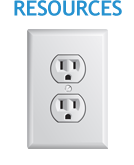A Word from Wayne: Taking the mystery our of internet access
News From Diverse Power

It’s a common term that’s not always understood: broadband.
Simply put, broadband is internet access that is faster than traditional dial-up and always on and available to use.
If you are among those fortunate enough to have reliable broadband, you may not recognize the dilemma faced by approximately 1.6 million Georgians who lack access to high-speed internet service, according to Georgia Gov. Brian Kemp.
A digital divide exists because many rural consumers in sparsely populated areas don’t have access to high-speed internet.
That fact was made even more pronounced when the COVID-19 pandemic placed an increased emphasis on telemedicine and required schools to convert to distance learning.
Recent State of Georgia initiatives include:
Georgia Broadband Deployment Initiative (GBDI): Rooted in 2018’s Senate Bill 402, GBDI’s first priority is to produce a map of all locations in Georgia that are unserved by broadband. This map is estimated to be completed by June 30, 2020. Potential state broadband funding proposals intended to facilitate connectivity for students involved in distance learning will be driven by GBDI’s broadband map. Additionally, the GBDI has produced a map of all public Wi-Fi hot spots in Georgia as part of their support of distance learning and telemedicine. To view the Wi-Fi map, visit bit.ly/gmwf. For more information on the GBDI and its initiatives, see “What’s happening with rural broadband?” in the December 2019 issue of Georgia Magazine at bit.ly/3b4cPCU.
Senate Bill 2 (SB2)/EMC Broadband Authorization: Passed in April 2019, this provides legal authority for Georgia’s 41 electric membership corporations (EMCs) to offer broadband, either as a service provider or partner. Actions in each EMC service area will be unique for each electric cooperative. For many, it may not be financially viable to establish a separate, retail broadband business under the rules required by SB 2, but every EMC in the state is looking for ways to address this need on behalf of their members.
Senate Bill 17/Rural Telephone Cooperative Broadband Authorization: This 2019 authorization allows Georgia’s telephone cooperatives to provide internet and broadband services directly or indirectly and expands the areas in which they can provide service.
Federal programs targeting rural broadband include: Broadband ReConnect Program: This USDA initiative furnishes loans and grants
for construction, improvement or acquisition of facilities and equipment to provide rural broadband. For more information, visit usda.gov/reconnect.
Rural Digital Opportunity Fund: This $20.4 billion FCC program brings high-speed fixed broadband service to rural homes and businesses. Set to begin late this year, Phase I targets more than 6 million unserved homes and businesses, while Phase II will cover partially served locations and those not funded in Phase I.
The type of broadband service available is generally dependent on a customer’s primary telephone service provider (Incumbent Local Exchange Carrier) and includes:
Digital Subscriber Line (DSL) is a wireline transmission technology that transmits data over old copper telephone lines already installed. Availability and speed depends on how close you are to the telephone company network infrastructure.
Cable modem service enables cable providers to supply broadband using the coaxial cables that deliver programming to your TV. However, cable companies generally don’t extend service very far beyond areas with high population density.
Fiber optic technology transmits data at speeds far greater than DSL or cable modem. Many providers have expanded their fiber networks to include bundled voice, internet access and video services, where population density can support the significant capital investment.
Wireless broadband transmits with speeds comparable to DSL while using radio links to connect to the internet in remote areas where providing DSL or cable modem service may be cost-prohibitive. Rugged terrain can present significant challenges for wireless broadband.
Satellite broadband is used to serve remote areas. Download speeds are typically slower than DSL and cable modem. Weather conditions can affect service and slow download speeds.
Other terms connected with delivery of service include:
Megabyte and Megabit: A megabyte (MB) denotes file size while a megabit (Mb) measures download speeds. Likewise, a gigabyte (GB) and a gigabit (Gb) denote file size and download speeds, respectively.
Mbps and Kbps: One megabit per second (Mbps) equals 1,000 kilobits per second (Kbps), or one million bits per second.






